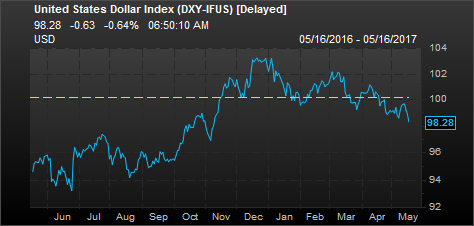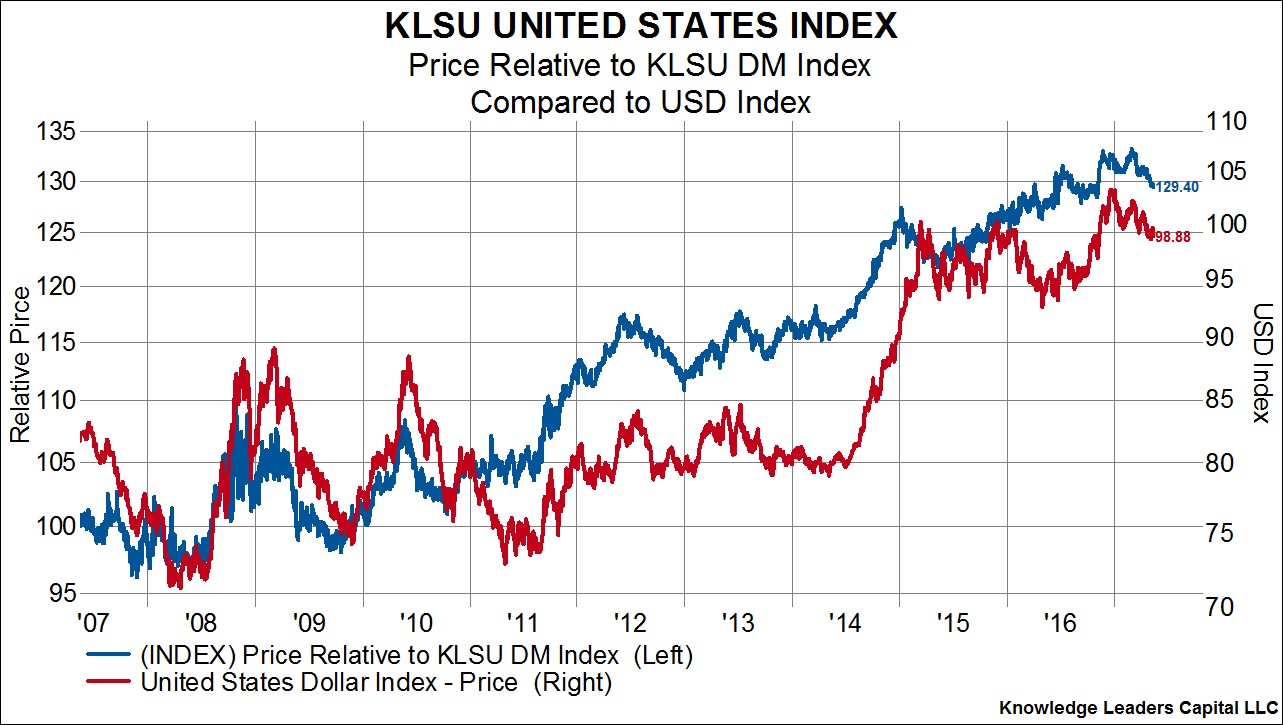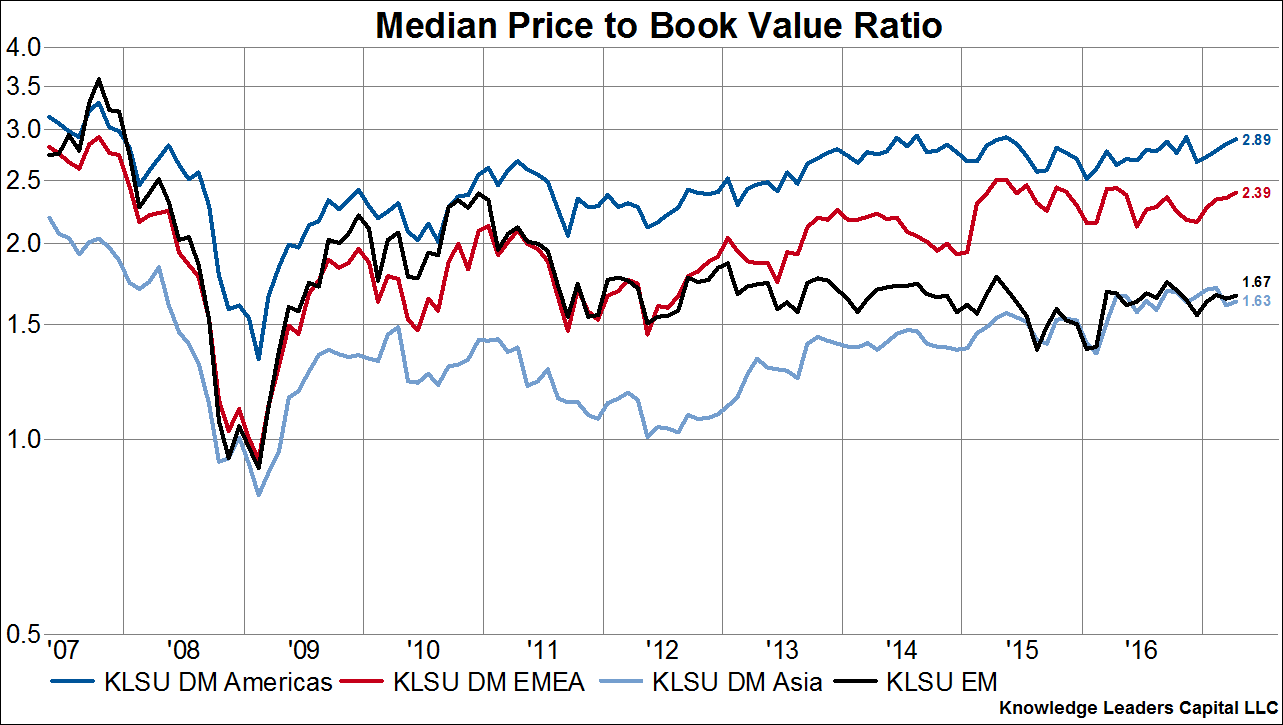Written by Bryce Coward
[As this article explains, a weakening US dollar, high price/book stock valuations and the probability of the budget deficit rising further all point to US equity underperformance.]
1. Weakening US Dollar
With the USD now about 5% off its January peak and having made a series of four lower lows and lower highs, it’s fair to say that the period of US dollar strength we witnessed for most of 2016 has come and gone.
This is quite important for equity investors because the relative performance of US and foreign equities is heavily influenced by the direction of the US dollar. As the dollar rises, US equities tend to outperform. As the dollar falls, the US equities tend to underperform.
Chart 2 shows this dynamic rather clearly.


2. High Price/Book Stock Valuations
…There is another factor that is lining up in favor of US equity underperformance, namely relative valuations…
Experienced investors understand that valuations are rarely a catalyst for major market moves, but they are supportive of longer-term trends. As chart 3 shows, the median DM Americas company is valued at the high end of the price/book value range over the last decade. Meanwhile, the median DM Asia company and the median EM company are hovering somewhere in the middle of their historic ranges. This dynamic is supportive of foreign equity outperformance.

3. High Probability Of Budget Deficit Rising Further
Lastly, the high likelihood of a growing budget deficit suggests the decade of US equity outperformance may be coming to an end.
As the next chart shows, the relative performance of US equities (blue line, left axis) is highly correlated with the US budget deficit as a percent of GDP (red line, right axis, inverted). As the budget deficit falls, US equities tend to enjoy outperformance relative to their foreign peers, and vice versa.
According to the non-partisan Congressional Budget Office and based on current law, the US budget deficit is set to narrow in 2017 and 2018, but will then rise in 8 of the next 9 years (table below). Importantly, these CBO projections are prior to the net effect of tax reform/cuts, which are likely to be expansionary to the deficit given the administration’s public statements.














Leave A Comment